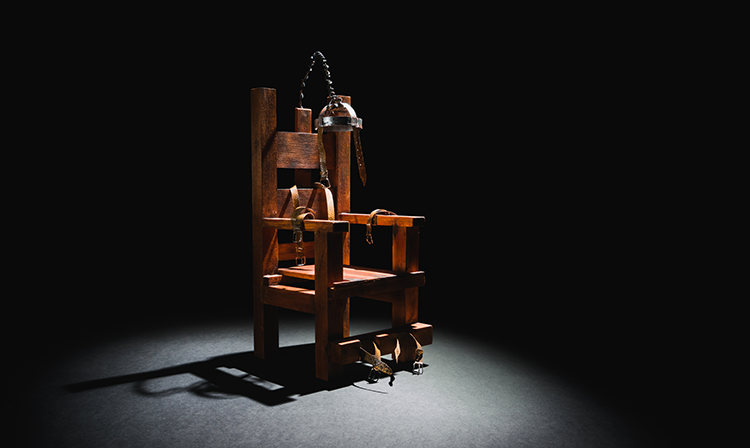Man who built electric chair for Thursday execution had no engineering credentials

Image from Shutterstock.
The man who built the electric chair that is set to be used Thursday in a Tennessee execution is worried the device will malfunction.
Fred Leuchter promoted himself as an engineer, but he has no engineering degree or license, the Associated Press reports. His background came to light after he claimed there was no gas chambers at Auschwitz.
But Leuchter’s concern does not stem from his own abilities. Rather, he is worried the electric chair will fail because of changes made to it after he worked on it.
“What I’m worried about now is Tennessee’s got an electric chair that’s going to hurt someone or cause problems. And it’s got my name on it,” Leuchter told AP. “I don’t think it’s going to be humane.”
Deborah Denno, a professor at the Fordham University School of Law, wrote in a law review article that Leuchter was a self-taught device-maker with a history degree. In a 1991 consent decree, he acknowledged he has never been registered as a professional engineer, although he represented himself as an engineer to the states.
Denno told AP that the most qualified people often are reluctant to be involved in executions, and Leuchter filled a void. Even after states stopped contracting with Leuchter, they still asked him for help “because they literally had no one else to go to,” she said.
The only Tennessee execution using Leuchter’s chair happened in 2007, and there were no problems reported.
Tennessee is set to execute Edmund Zagorski Thursday evening for the murders of two men who planned to buy marijuana from him, the Tennessean reports. The 6th U.S. Circuit Court of Appeals at Cincinnati turned down a last-minute appeal on Wednesday that raised objections to execution by electric chair, according to another Tennessean story.
Zagorski had chosen that method of execution after the Tennessee Supreme Court upheld a lethal injection method that uses a three-drug cocktail. Zagorski’s lawyers had argued he was essentially forced to choose the electric chair after the decision, while the state argued he couldn’t choose an execution method and then challenge it.
A federal judge ruled Monday that Tennessee must give Zagorski’s lawyer access to a phone immediately before and during the execution, according to the Tennessean and News Channel 5.
Hat tip to the Marshall Project.



